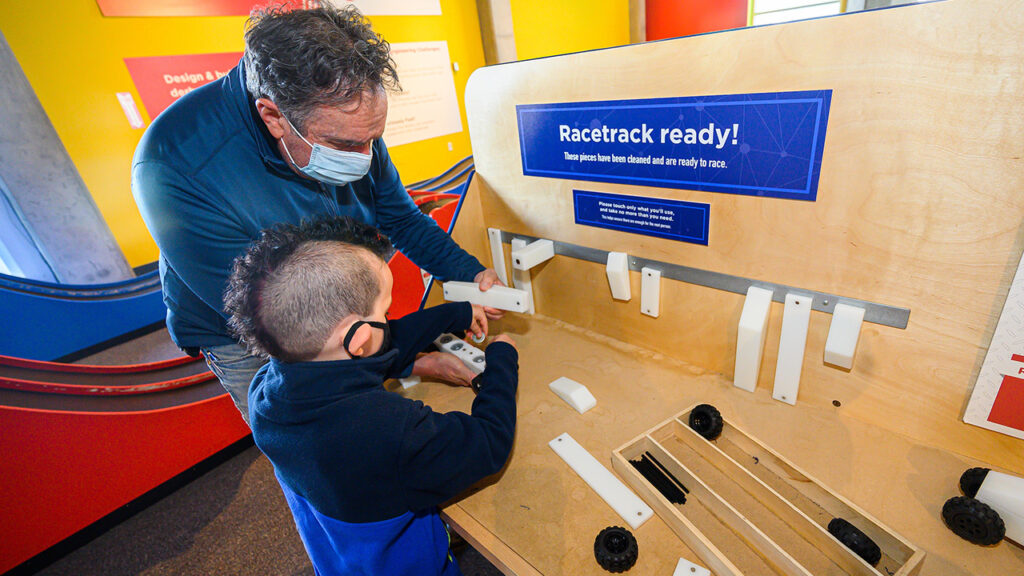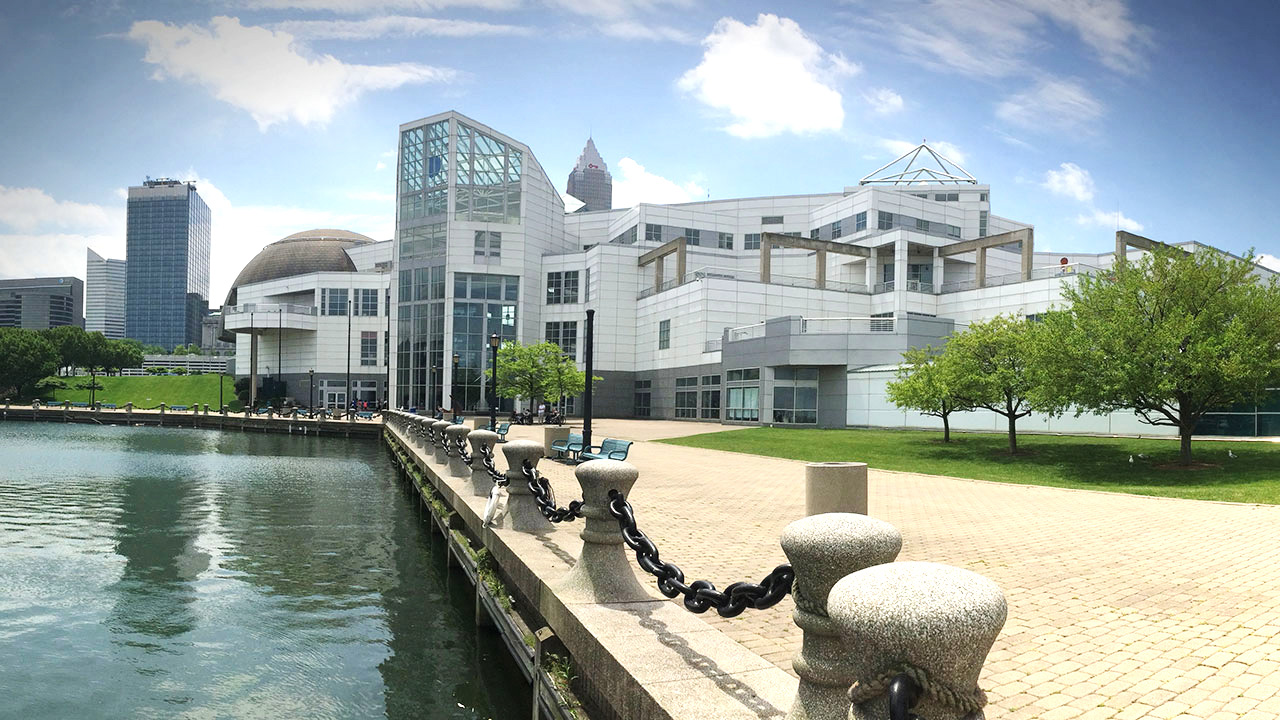For all the oxygen currently being suctioned out the room by NFTs, it’s easy to forget that three years ago a different aspect of the cryptosphere was piquing the interest of cultural institutions. Before coronavirus, digital pivots, and some dude called Beeple, the soaring value and broadening adoption of bitcoin raised the question of cryptocurrencies inside cultural spaces.
By 2018, a few intrepid U.S. museums had made the jump, offering cryptocurrency as a payment option for visitors. One of them was Cleveland’s Great Lakes Science Center, which made the move ahead of a citywide conference focused on developing Ohio into a blockchain juggernaut.
Executed through BitPay, a bitcoin payment provider service for merchants, the decision was more philosophical than practical — a master stroke for the region’s leading science and technology institution. To date, only a handful of visitors have bought tickets by way of QR Code and BTC, but, as Kirsten Ellenbogen, President & CEO, tells Jing Culture & Commerce, it’s not a decision the museum regrets in the slightest.
Two years ago, Great Lakes Science Center began accepting bitcoin. Talk us through the thinking.
We began accepting bitcoin because we have been part of a community-wide effort to grow the region’s strength as an emerging technologies hub. We already provided curriculum and programming about emerging technologies like Internet of Things, cybersecurity, and blockchain databases in local public schools. We were expanding that to support programs at the college level and with efforts to bring international blockchain conversations to Cleveland. Accepting bitcoin was just a small part of our participation in the larger community effort.

As a museum focused on scientific and technologic innovation, Great Lakes Science Center joined Cleveland in its citywide push to build a blockchain ecosystem. Image: Ken Blaze, courtesy of Great Lakes Science Center
The museum uses payment processor BitPay. What was the implementation process?
Implementing Bitpay was a learning curve. Our ticketing system was not set up to accept bitcoin as a transaction type, so we needed to figure it out on our own. They did make it fairly easy and the process and support was all available online. We were able to implement it fairly quickly and get our staff trained.
Great Lakes Science Center currently accepts bitcoin onsite for tickets. Are there plans to integrate in other areas, such as online bookings, the shop, or donations?
At the moment, due to our ticketing software not accepting any form of cryptocurrency, we don’t have any immediate plans to integrate it ourselves. As for donations, the fluctuating value of the currency and audit concerns are slowing down that conversation. As a 501c3 nonprofit, our audit trail has to be very clean and transparent. Until there is more of an infrastructure for these types of donations, it makes it a little less viable of a solution for us.
You’re one of very few U.S. museums that accepts cryptocurrency. What has the general response been?
While it’s true we have sold fewer than six tickets via bitcoin, we are committed to keeping this option in place. We continue to get feedback that accepting bitcoin puts out a welcome mat to emerging technology and business leaders interested in our community. It signals bitcoin and blockchain are important in Cleveland, and it’s part of demonstrating the relevance of emerging technologies to Cleveland students, who need to be inspired about their role in our future.
Within the cultural community, have museums asked about your experiences?
Other museums have reached out to ask how we were processing bitcoin payments and the implementation procedures, but it doesn’t look like those museums moved forward to. We were motivated by workforce and economic development efforts in our community and inspired by our work on emerging technologies with Cleveland students. Without those kinds of driving forces, other organizations may be looking at bitcoin as a short term trend to join, rather than part of their mission to serve the community.
Having made the jump yourself, do you think there’s a viable role for cryptocurrencies at cultural institutions?
Every year we move closer to being a cashless society, so that certainly makes the potential for a more secure form of currency very valuable. It’s important to remain open and flexible to the possibilities, which is what science is all about! Of course, for collecting museums, NFTs are now a pressing concern, but for all of us involved with cryptocurrency, we need to have more conversations about the environmental impact.



